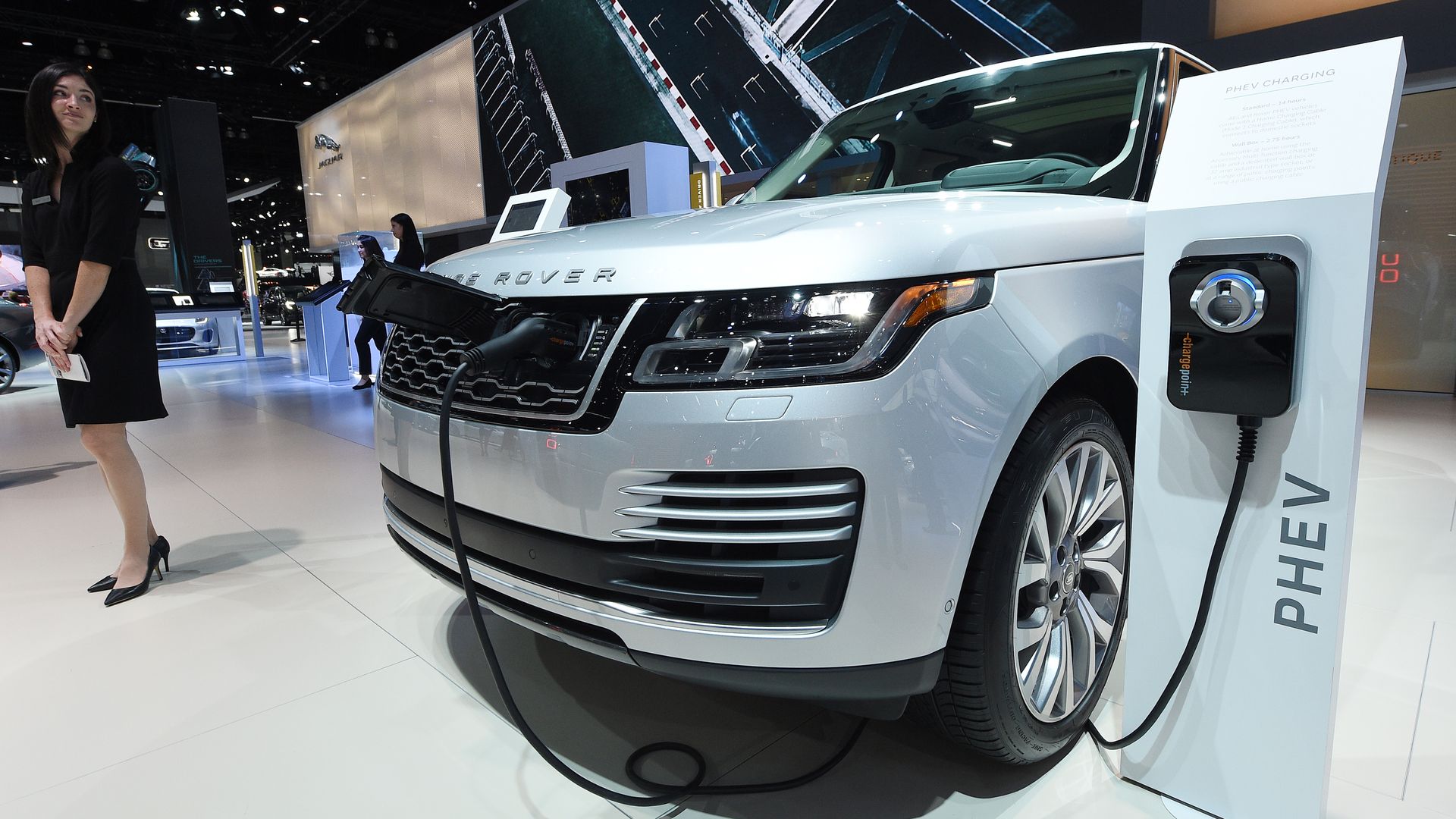Updated Apr 10, 2018 - Energy & Climate
Expert VoicesEPA emissions rollback a hit to climate, innovation
Add Axios as your preferred source to
see more of our stories on Google.

The Land Rover plug-in hybrid Range Rover Sport at the AutoMobility LA show in November 2017. Photo: Kevork Djansezian/Getty Images
